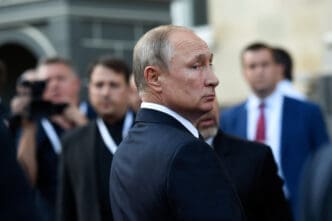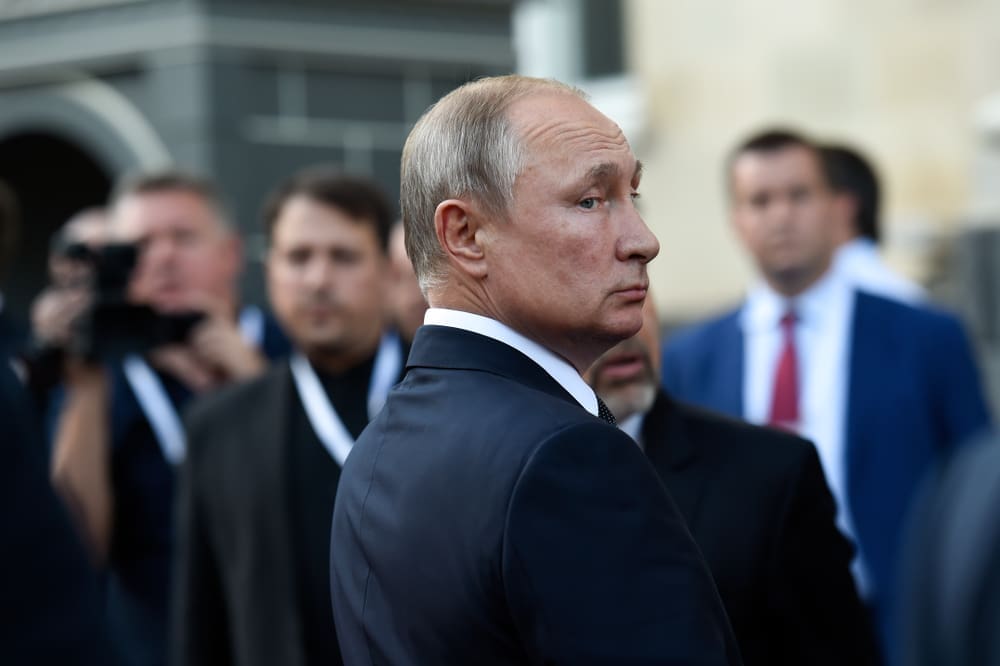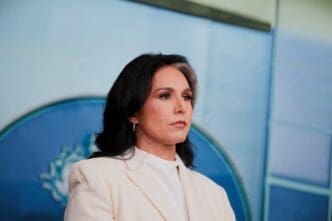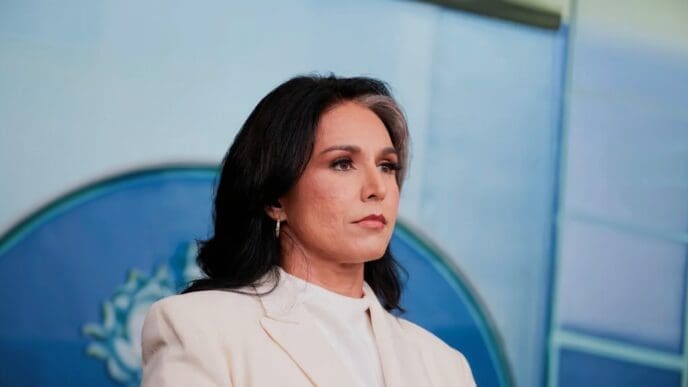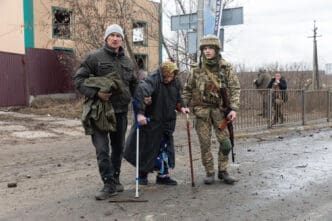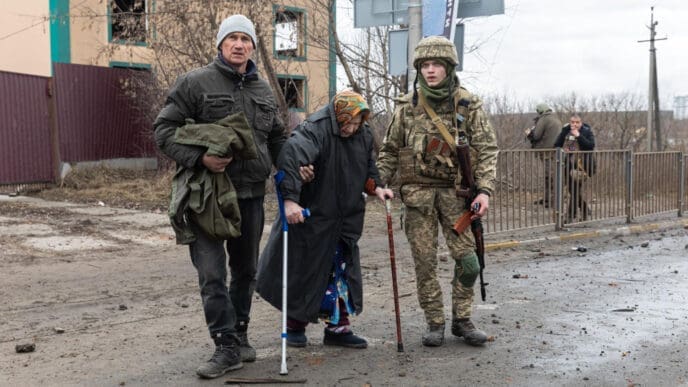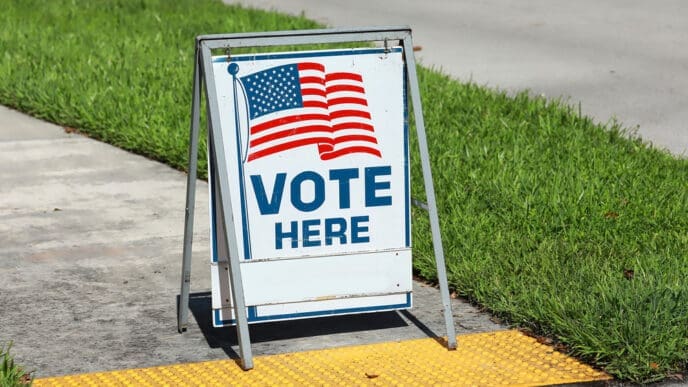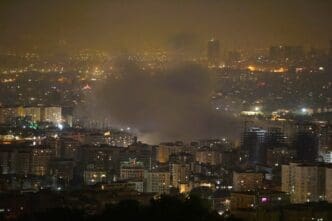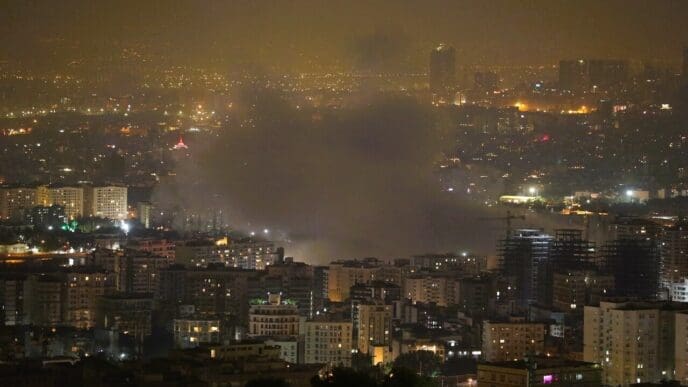Executive Summary
The Story So Far
Why This Matters
Who Thinks What?
Diplomatic efforts to end the war in Ukraine are facing significant hurdles as the Kremlin plays down prospects of an immediate summit between Russian President Vladimir Putin and Ukrainian President Volodymyr Zelensky. This caution from Moscow comes even as President Donald Trump continues to advocate for direct talks, although he has acknowledged President Putin’s potential unwillingness to reach a peace deal.
Diplomatic Engagements and Shifting Stances
The push for a bilateral meeting follows recent high-level engagements by President Trump, including a meeting with President Putin in Alaska last week, and subsequent talks with seven European leaders and President Zelensky at the White House on Monday.
President Trump admitted that resolving the conflict was “a tough one” and conceded it was possible President Putin was not interested in ending hostilities. “We’re going to find out about President Putin in the next couple of weeks,” Trump said on Tuesday, adding, “It’s possible that he doesn’t want to make a deal.”
Kremlin’s Position on Talks
While President Putin reportedly told President Trump on Monday he was “open” to the idea of direct talks with Ukraine, Russian Foreign Minister Sergei Lavrov subsequently tempered that commitment. Any meeting would need to be prepared “gradually… starting with the expert level and thereafter going through all the required steps,” Lavrov stated, echoing a frequent Kremlin position.
Dmitry Polyanskiy, a Russian deputy representative to the UN, told the BBC that “nobody [had] rejected” the opportunity for direct talks, but emphasized that “it shouldn’t be a meeting for the sake of a meeting.” It was also reported that President Putin had suggested President Zelensky travel to Moscow for talks, a proposal Ukraine was unlikely to accept.
Evolving Peace Efforts and Security Guarantees
Recent discussions appear to have provided President Trump with a renewed understanding of the complexities of the conflict and the substantial differences between Moscow’s and Kyiv’s positions. The much-touted ceasefire President Trump had previously suggested he could secure has not materialized.
President Trump has since indicated that Ukraine and Russia should move directly to a permanent peace deal. Some progress was reportedly made regarding security guarantees for Ukraine, with President Zelensky and European leaders seemingly convincing President Trump that such commitments would be paramount to Kyiv’s sovereignty in the event of a peace deal.
On Tuesday, President Trump stated the U.S. was willing to provide “by air” support if Europeans provided “boots on the ground” in Ukraine following a ceasefire or peace deal, while ruling out the deployment of U.S. troops. The France and UK-led Coalition of the Willing has been working to firm up plans for a reassurance force for Ukraine should hostilities cease.
European Skepticism and Underlying Tensions
Following his summit with President Putin and recent talks with President Zelensky, President Trump now appears to believe direct talks could bring a peace deal closer, despite acknowledging “tremendous bad blood” between the two leaders. Their last meeting was in 2019, before the current phase of hostilities that has resulted in significant casualties and destruction.
President Putin considers President Zelensky illegitimate and views him as responsible for Ukraine’s growing proximity to the West. He has also made claims about Kyiv being ruled by a “neo-Nazi regime” and has stated that any ceasefire would require a change in Kyiv’s leadership. Russia also appears to have little interest in agreeing to talks while its troops maintain an advantage on the front line.
Despite these challenges, European leaders and President Zelensky have spoken in favor of the idea of a bilateral meeting, with President Zelensky stating he was open to “any format.” However, Ukraine’s European partners appear significantly less optimistic than President Trump that a resolution is within reach.
On Tuesday, French President Emmanuel Macron called President Putin “a predator, and an ogre at our doorstep” and expressed “the greatest doubt” about the Russian president’s willingness to work towards peace. Finnish President Alexander Stubb echoed this sentiment, stating President Putin was “rarely to be trusted” and expressing skepticism about a meeting with President Zelensky materializing.

